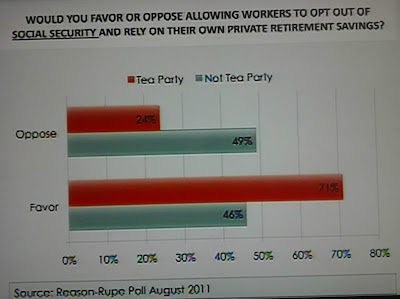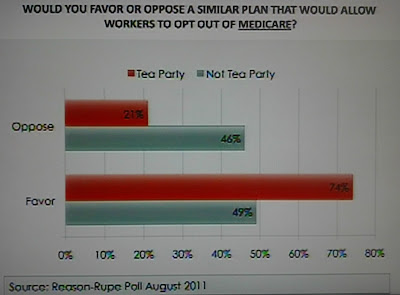A new book by Peter J. Wallison, "Bad History, Worse Policy," reviews the causes of the 2008 financial crisis. We have reviewed the facts of over-regulation and bad economic policy along side our allies at the San Diego Local Order of Bloggers, but this informational and enlightening book brings indisputable facts to fortify our arguments.
We have compiled a key section of Mr. Wallison's discussion into a C-SPAN clip (7m 42s) named "GOVERNMENT POLICY CAUSED THE 2008 FINANCIAL CRISIS."
In the book, I argued that there was never any significant debate about the causes of the 2008 financial crisis.
Although there were two narratives about why it happened, only one of them was accepted and propagated by the media.
In effect the necessary competition and ideas never occurred.
As a result in the policy that was adopted, the Dodd-Frank act, is not soundly based on any political consensus. This will leave the legitimacy of the act in question for the foreseeable future.
The dodd-frank act is based on a narrative developed entirely by the left. It places responsibility for the financial crisis wholly on the private sector and particularly on the large Wall Street commercial and investment banks. To the extent the government had a role in the financial crisis, it was in failing to regulate adequately either those institutions or the mortgage originators who profited by selling mortgages to people who could not afford them.
The book traces the influence of this narrative into the specific revisions of the Dodd-Frank act.
I argue in the book that this narrative is false.
It was bad history and it produced worse policy.
...
Statements made by HUD throughout this period make clear that the agency's intention was to reduce the underwriting standards that were prevailing in the market in order to make mortgage credit available to a larger number of borrowers.
There is no ambiguity about this issue.
When Democrats took control of congress in January 2007, they began implementing policies that made a fragile economy collapse. While Bad History, Worse Policy is not a partisan review of the financial crisis it does explore the fact that government regulatory and housing policy created the housing bubble. When Democrats pursued global warming policy; gasoline, energy, food and other costs across the economy increased. The fragile housing market collapsed as marginal home buyers failed to pay their mortgage.
John Allison of the Cato Institute via C-SPAN Clip "DESTRUCTIVE REGULATION AND THE 2008 FINANCIAL CRISIS" (2m 15s):
We don't have a private monetary system in the United States, a government own monetary system. By definition, they are caused by government policy and the Federal Reserve has been very creative and in this case Allen Greenspan made bad mistakes because he wanted to go out a hero.
We were having a minor economic correction, he created negative economic rates. Then Ben Bernanke created a new yield curve, because we suddenly had a negative spread, which is a whopping reason this has lasted several years.
The context in which the mistakes were made were really Federal Reserve policies and they got deflected primarily in the housing market, specifically Fannie Mae and Freddie - Freddie Mac and Fannie Mae. Over investment in housing is particularly destructive for housing and that is why this was an unusually big bubble.
It was pushed further, but it was also very destructive because housing is consumption. People don't think of housing as consumption, but you consume a house. So we incentivized a massive over-consumption, which is analogous in agriculture to "eating our seed corn," which is one reason we have had such a hard time getting the production process going
W.C. Varones comments upon other impacts from the take over of the financial system in a post titled, "Think Cyprus can't happen here? It already did."
What occurred this weekend in Cyprus was a theft from responsible savers to benefit irresponsible banks. Small depositors get screwed while bank bondholders (largely other banks and large institutions) get made whole. Which, it turns out, is exactly what has happened in the U.S. the past five years.
*Note
C-Span has an automated transcription feed at the bottom of the video clips, it does not accurately reflect the statements in the video clips due to errors. If this feed was more accurate, search engines would have an easier time finding the information.





















